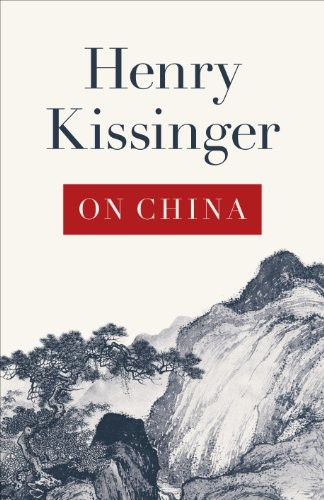
On China
کتاب های مرتبط
- اطلاعات
- نقد و بررسی
- دیدگاه کاربران
نقد و بررسی

April 18, 2011
In this canny, engaging historical study, the ex-secretary of state examines China's foreign policy for insights into its statecraft and soul. Kissinger (Crisis) recaps China's geo-strategic wei qi matchâhis ubiquitous metaphor for the subtle positioning characteristic of the national board gameâfrom the Korean War to today's trade disputes, emphasizing the relationship with the U.S. as it moved from bitter enmity to cordial interdependence. He grounds his narrative in a penetrating analysis of age-old features of Chinese policy, emphasizing the Middle Kingdom's hauteur, wariness of encirclementâto the Chinese, he argues, America is just another barbarian horde to manipulateâand dread of domestic disorder. As an architect of Nixon's opening to China and a freelance go-between for later administrations, Kissinger is a major figure in the story, and the text often revolves around exegeses of his cryptic dialogues with Chinese leaders. The book therefore oozes Kissingerian realism, with its stress on great power machinations, international balance, and high-stakes summitry and its impatience with human rights strictures; a deadpan wit and cold-blooded candor flash out from clouds of diplomatic euphemism. Though it sometimes feels like a mind game between mandarins of many stripes, and Kissinger's generalizations about Chinese national character can also sound outmoded, this insider's account sheds a revealing light on the contours of Chinese-American relations.

Starred review from April 15, 2011
From the eminent elder statesman, an astute appraisal on Chinese diplomacy from ancient times to the fraught present "strategic trust" with the United States.
Former Secretary of State Kissinger (Crisis : The Anatomy of Two Major Foreign Policy Crises: Based on the Record of Henry Kissinger's Hitherto Secret Telephone Conversations, 2003, etc.) brings his considerable scholarly knowledge and professional expertise to this chronicle of the complicated evolution and precarious future of Chinese diplomacy with the West. Traditionally, Chinese foreign policy as practiced by centuries of emperors was marked by appeasement and generally overwhelming their barbarian enemies with Chinese largesse: the "five baits" included clothing, music, slaves and food to "corrupt" the opponent into seeing things the Chinese way. In their supreme self-containment, the Chinese disdained the importunate advances of the barbarians until the aggressive incursions by the West to force open the barriers to trade in the late 18th century. Foreign threats by the West, Russia and Japan and the series of "unequal treaties" imposed on China impelled it into a period of "self-strengthening" that was finally achieved by the Communist consolidation of power under Mao. From Mao's declaration in 1949 that the Chinese people "have stood up," the Chinese practiced a modern form of pursuing the "psychological advantage," rather than the military (shades of Sun Tzu), in confronting the superpowers. However, a new era commenced under Deng Xiaoping, who was bent on reform and open to travel and new ideas, and normalization of relations with America was finally established under President Carter. Kissinger wisely considers Tiananmen, Taiwan, the elevation of Jiang Zemin and the new era of "cooperative coexistence" maintained by President Hu Jintao. The author warns, however, that despite China's commitment to a "peaceful rise," the U.S.-China relationship will continue to contain an underlying tension.
Sage words and critical perspective lent by a significant participant in historical events.
(COPYRIGHT (2011) KIRKUS REVIEWS/NIELSEN BUSINESS MEDIA, INC. ALL RIGHTS RESERVED.)

























دیدگاه کاربران